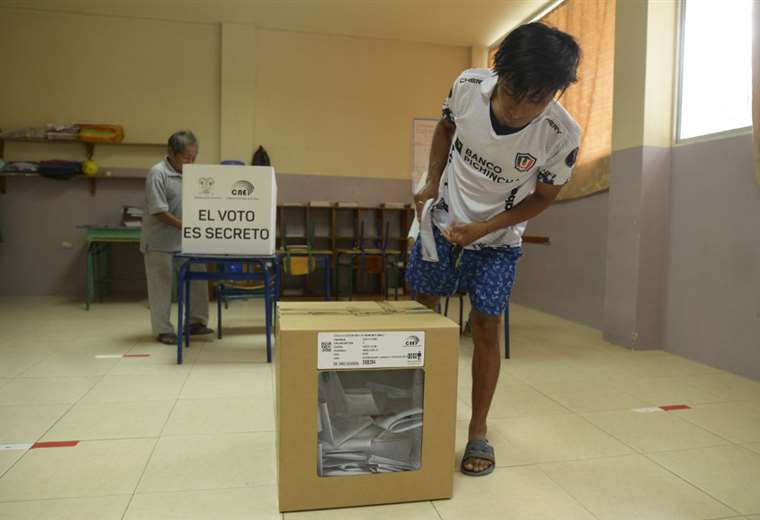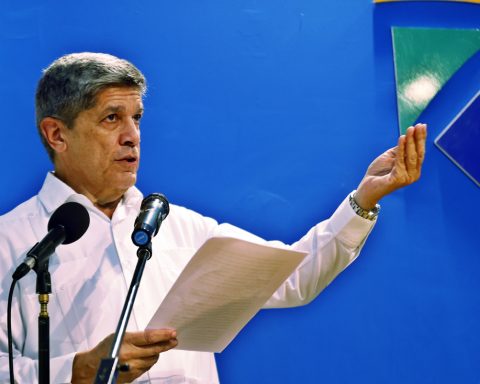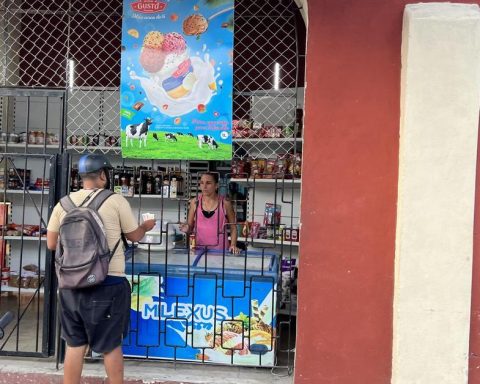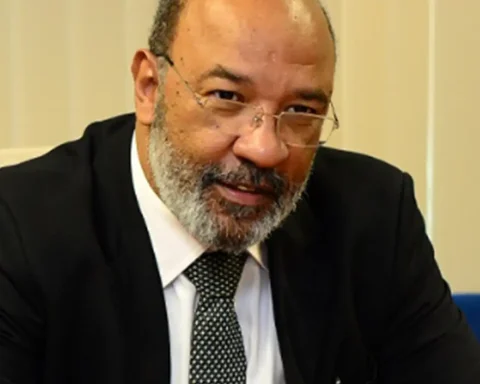April 22, 2024, 9:23 AM
April 22, 2024, 9:23 AM
Ecuador gave the green light to the extradition of Ecuadorians required by other countries in the sunday referendumwith which President Daniel Noboa promoted legal and constitutional reforms to toughen his war against organized crime and drug violence that ravages the nation.
The Yes won with 65% of the valid votess, according to an official quick count, in the question about modifying the 2008 socialist Constitution, which establishes that in no case will the extradition of nationals be granted.
This is the second attempt by a government in a year for carrying out this measure.
In February 2023, former president Guillermo Lasso (2021-2023) proposed a similar consultation that was rejected with 52% of the votes.
Below are the main keys to understanding the scope of extradition in Ecuador:
1. Since when will it be applied?
The surrender of Ecuadorians linked to transnational organized crime is the flag of struggle of Noboa, 36 years old, and determined to confront with a strong hand the local gangs associated with Colombian, Mexican and Albanian cartels.
Converted into a center of drug operations due to its strategic location in the eastern Pacific and dollarized economy, the small country faces its worst security crisis. The homicide rate rose from 6 per 100,000 inhabitants in 2018 to the record of 43 per 100,000 last year.
When the Yes vote wins, the Constitution and the extradition law will be modified.
“From the day the results (of the referendum) are proclaimed in the Official Registry (Diario), in Ecuador there will officially be the extradition of Ecuadorians to foreign soil,” constitutionalist Ismael Quintana told AFP.
Peru and Colombia, neighbors of Ecuador and the largest cocaine producers in the world, allow the extradition of compatriots.
2. Types of extradition
In Ecuador, “active” extradition is currently in force.. That is, justice can request the delivery of a national or foreigner to Ecuadorian territory to be prosecuted.
With the approved reform, “the extradition of Ecuadorians to foreign soil is established, which in legal terms is called passive extradition,” Quintana explained.
From now on, an Ecuadorian who has committed a crime in another country can be handed over if required.
The 2008 Constitution prohibits the extradition of compatriots and indicates that their trial will be subject to Ecuadorian laws.
“The extradition proposed by Noboa is a complete extradition,” which means that “for any crime an Ecuadorian citizen could be extradited,” although international conventions such as those of Caracas and Montevideo “establish certain exceptions,” said the expert.
For Mauricio López, a 36-year-old private employee who voted in Quito in favor of extradition, The measure will cause “fear” among criminals as a persuasion mechanism and will be “a more rigorous way for people to be punished,” according to what he told AFP.
3. The limits
“Extradition will not be granted for political and related crimes, with the exclusion of terrorism, crimes against humanity and others established in international conventions,” specifies the amendment authorized at the polls.
Quintana pointed out that “extradition has some limits” established by international treaties.
“You cannot extradite someone who is going to be tried to receive or be subjected to inhuman, cruel treatment or degrading punishments,” said the constitutionalist.
International regulations They exclude extraditions for reasons of political persecution, military or religious crimes.
There is another condition for extradition to proceed, according to the constitutionalist, and it is the so-called “double criminality”, which means that the crime for which a person is requested must also be classified in national legislation.
When “granting extradition, the minimum requirements established by domestic legislation and international instruments to which Ecuador is a subscriber must be observed,” he warned.


















